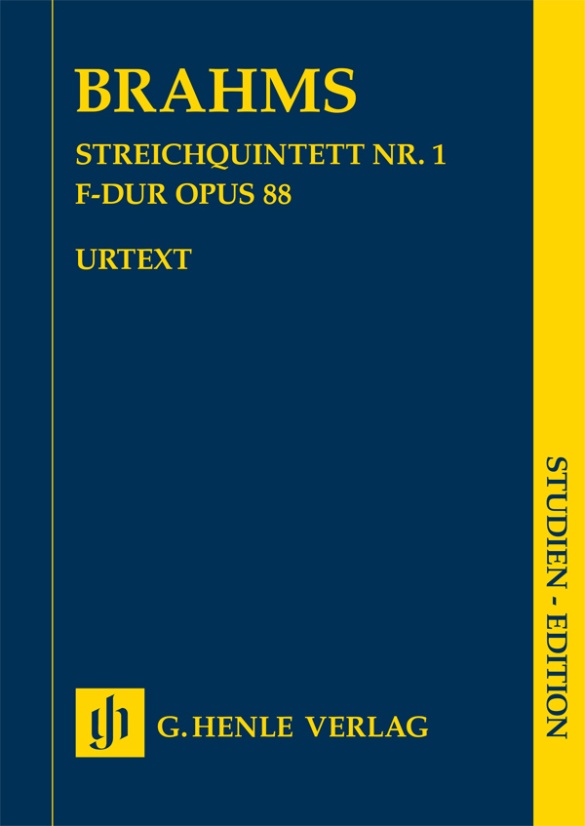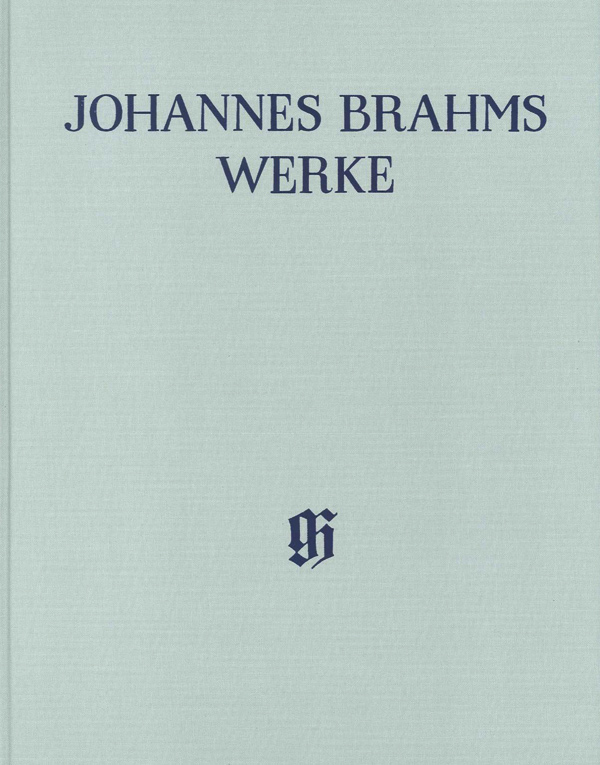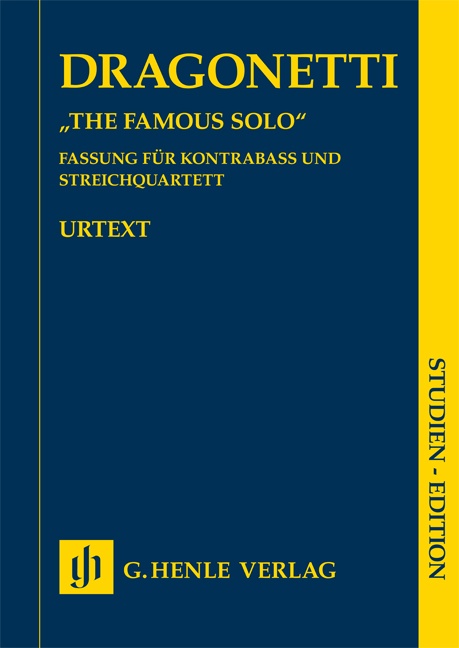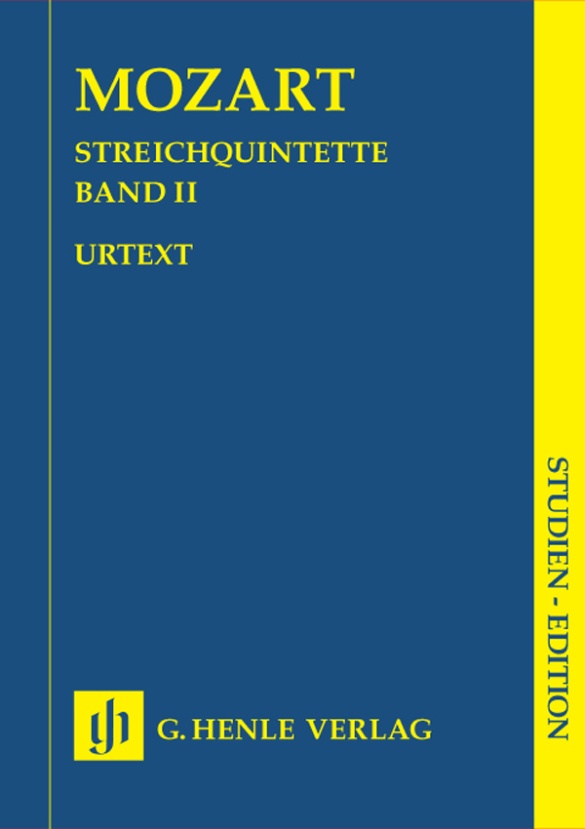

Johannes Brahms
String Quintet no. 1 F major op. 88
“Harmony, bliss, music of Raphaelesque beauty! and yet in its simplicity, how wonderfully artistically everything is done.” This is how Theodor Billroth enthused about the first String Quartet op. 88 by his friend Johannes Brahms. No wonder that it soon won the hearts of audiences and musicians alike. This chamber music work was written in spring 1882 as usual put to the test in various preview performances and revised until the autumn. Here, Brahms placed himself fully in the tradition of the Mozart quintets, also choosing the same scoring with two violins, two violas and a cello. With an edition of the performing parts and a matching study score based on the text of the Brahms Complete Edition, G. Henle Verlag is now the first to publish an Urtext edition of this jewel of the quintet repertoire.
Content/Details
About the Composer

Johannes Brahms
His significant output comprises chamber music, piano works, numerous choral compositions and songs (including settings of folk-song lyrics), as well as large-scale orchestral works in the 1870s and 1880s. His compositions are characterized by the process of developing variation. He is considered an antithesis to the New German School around Liszt, and an advocate of “absolute” music.
| 1833 | Born in Hamburg on May 7, the son of a musician. His first piano instruction with Willibald Cossel at age seven, then with Eduard Marxen; first public performances from 1843. |
| 1853 | Concert tour through German cities; he meets Schumann, who announces him as the next great composer in his essay “Neue Bahnen” (“New Paths”). A lifelong, intimate friendship develops with Clara Schumann. |
| 1854–57 | Piano Concerto No. 1 in D minor, Op. 15. |
| 1857–59 | Choir director, pianist, and teacher at the royal court in Detmold. |
| 1859–61 | Director of the Hamburg Women’s Choir. |
| 1860 | Manifesto against the New Germans around Liszt. |
| 1863 | Cantata “Rinaldo,” Op. 50. |
| 1863–64 | Director of the Wiener Singakademie. |
| 1868 | Partial performance in Vienna of “A German Requiem,” Op. 45 (the complete work premiered in Leipzig in 1869) |
| 1871–74 | Artistic director of the Gesellschaft der Musikfreunde (Society of Friends of Music) in Vienna. |
| 1873 | Haydn Variations, Op. 56a, for orchestra. |
| from 1877 | His symphonic output begins with the Symphony No. 1 in C minor, Op. 68 (begun 1862); composition of the Symphony No. 2 in D major, Op. 73; the Symphony No. 3 in F major, Op. 90 (1883); and Symphony No. 4 in E minor, Op. 98 (1884–85): cantabile themes, chamber-music-like style. |
| from 1878 | Travels in Italy. |
| 1878 | Violin Concerto in D major, Op. 77, for Joseph Joachim. |
| 1881 | Piano Concerto No. 2 in B-flat major, Op. 83, with a scherzo movement. |
| 1886 | Honorary president of Vienna’s Tonkünstlerverein (Association of Musicians). |
| 1897 | Four Serious Songs, Op. 121. Dies in Vienna on April 3. |
Product Safety Informations (GPSR)

G. Henle Verlag
Here you can find the information about the manufacturer of the product.G. Henle Verlag e.K.
Forstenrieder Allee 122
81476 München
Germany
info@henle.de
www.henle.com
Hoewel men qua diepgravendheid en presentatie geen steken laat vallen – integendeel, Henle poetst de laatste tijd zelfs de laatste oneffenheden en foutjes weg, waardoor er als recensent weinig meer overblijft om over te klagen ...
de nieuwe muze, 2022recommendations
autogenerated_cross_selling
Further editions of this title





